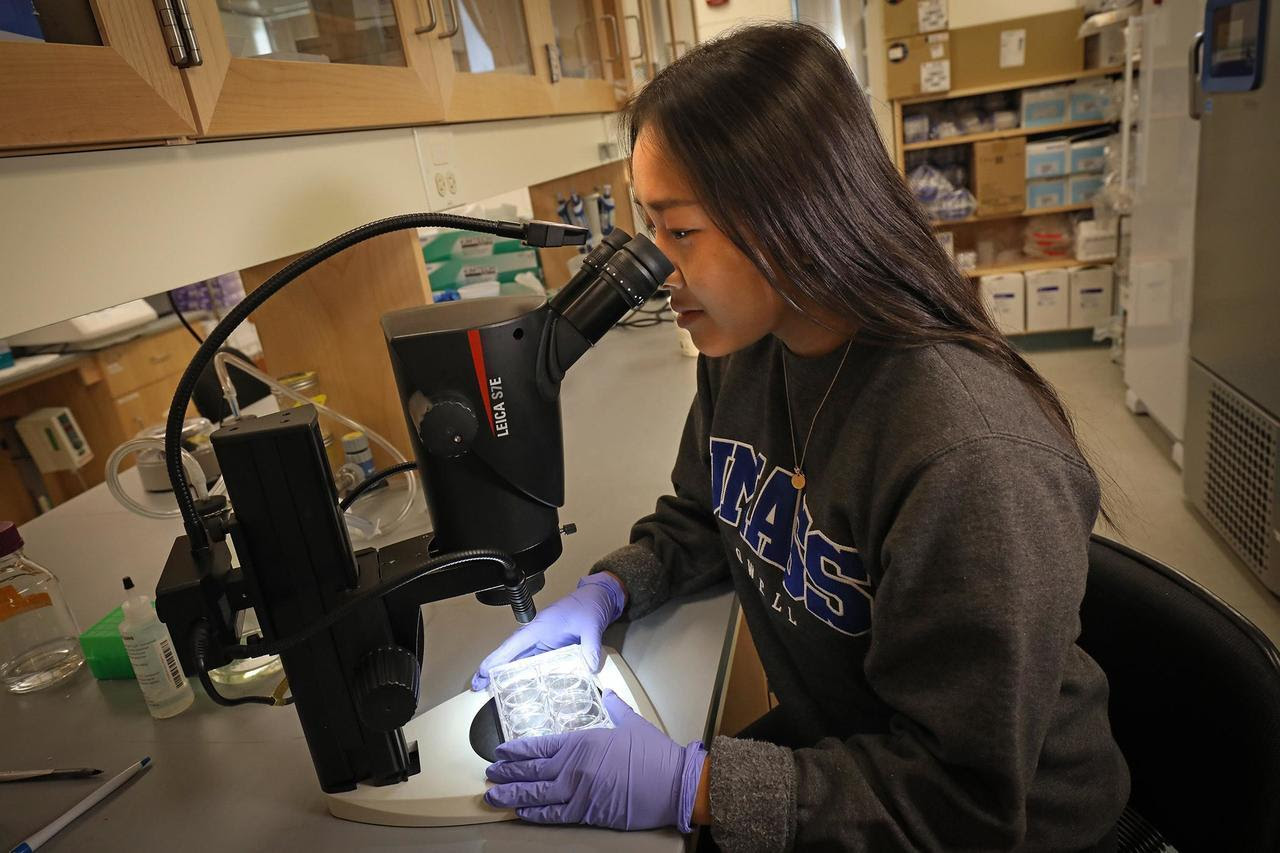
UMass Lowell reaches ‘prestigious’ R1 distinction, indicating high research activity
The University of Massachusetts Lowell has just joined sister schools UMass Boston and UMass Amherst as a designated R1 school, the top classification for research activity.
The Carnegie Foundation, the governing body of the classification system, announced UMass Lowell’s upgrade to “Research 1: Very High Research Spending and Doctorate Production” from its prior ranking of “Research 2: High Research Spending and Doctorate Production.”
“Research 1 status reflects UMass Lowell’s unwavering commitment to research excellence and innovation, a milestone achieved through the hard work and dedication of our faculty, staff and students,” school Chancellor Julie Chen said in the announcement.
The school now joins UMass Boston and UMass Amherst in the five-member University of Massachusetts system in what the school calls the “prestigious designation used to identify the nation’s top research institutions.” Only 7% of four-year universities have the distinction, with the Carnegie Classification of Institutions of Higher Education listing 187 in the category out of 3,939 total schools.
Rounding out the member schools, UMass Dartmouth and UMass Chan Medical School are both designated as R2, according to the Carnegie Classification of Institutions of Higher Education.
UMass Lowell has a 16,770 student population according to the most recent data at the federal government’s National Center for Education Statistics’ College Navigator. Of those, 12, 128 are undergraduates. The school has a student-to-faculty ratio of 17 to 1.
To reach R1, a university must spend at least $50 million on research and development and award a minimum of 70 research doctorates on average per year. The school says it blew past these minimums with research expenditures of more than $120 million across 13 research centers and 150 doctorate degrees awarded.
“This recognition underscores the significant research advancements happening at UMass Lowell and our commitment to creating new knowledge, driving innovation and inspiring discoveries that serve not only our areas of interest but our community and the Commonwealth of Massachusetts,” Chancellor Chen said.
The school says that in addition to its research into sustainability and energy, robotics, life science and space technology, it is partnering with the city of Lowell on the Lowell Innovation Network Corridor, which it calls “a public-private development set to transform the city’s economic future.”
“The R1 classification is a tremendous boost for our plans for LINC, which will be a vibrant live-work-learn-play district that is a nexus of research activity in eastern Massachusetts,” said Anne Maglia, UMass Lowell vice chancellor for research, innovation and economic development.


